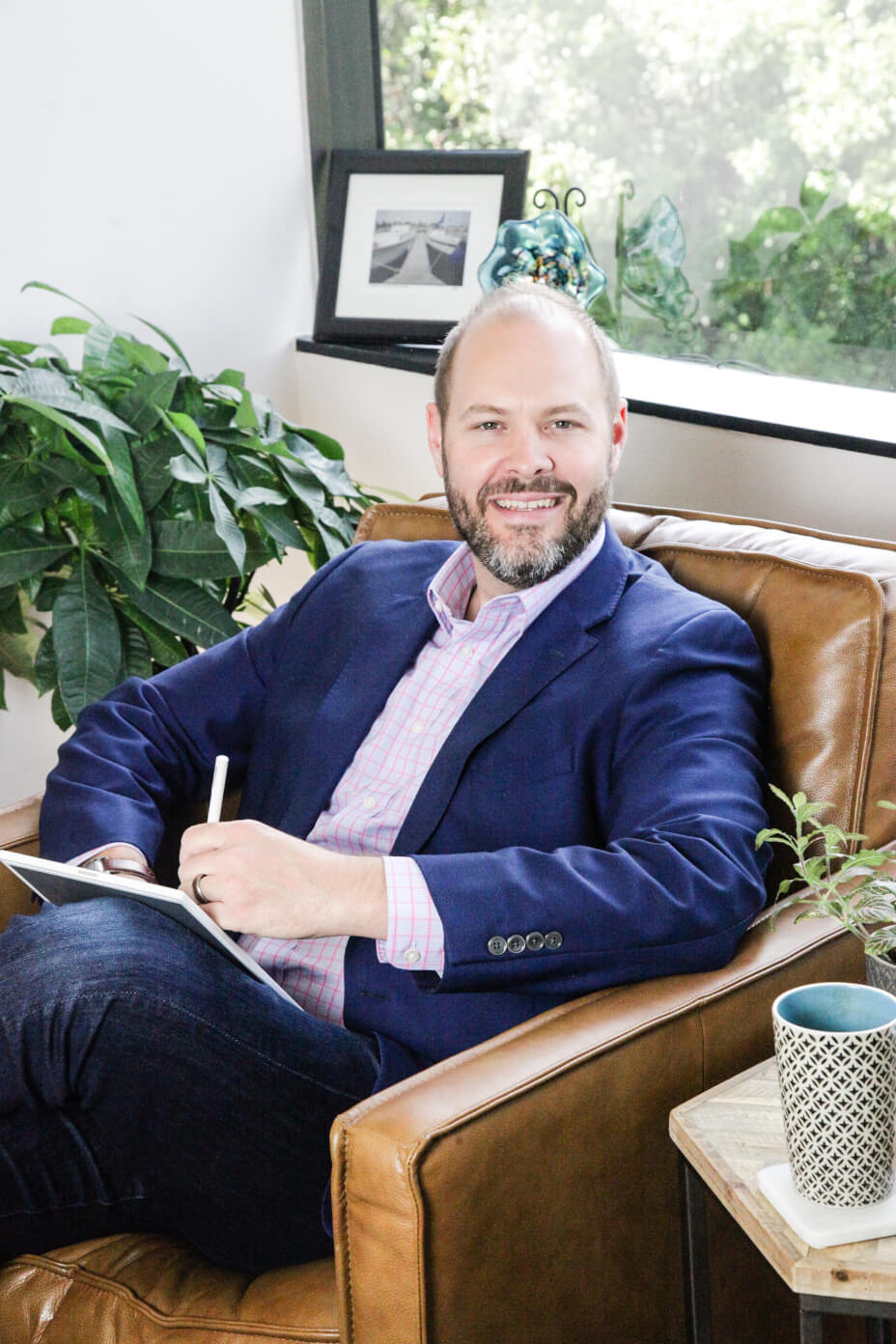
When our life doesn’t seem to be working the way we would like it to—whether that’s due to challenging emotions or troubling thoughts, or we just find ourselves too often in self-destructive behaviors, it can be helpful to reach out and ask for help. I consider my work a great honor to bear witness to another’s suffering, whatever that pain may be or how big or small you believe it to be. To join you in making sense of your narrative, as our brains have been built to do, is my privilege.
After gaining 11+ years of outpatient program clinical and managerial experience, I decided to focus more specifically on client care through the more traditional role of individual psychotherapy. I have developed, over the years, competency in multiple areas of struggle that exist for my patients, including: alcohol and substance abuse and dependency (addiction), process addictions (gambling, pornography, and technology), Bipolar Disorder, Anxiety and Depressive Disorders, ADHD, Autism Spectrum Disorder, Grief and Loss, family conflicts, lack of motivation, spiritual issues, and many others. I also carry years of treatment planning experience into each of my appointments, and if appropriate, can integrate that knowledge and referral-base into our therapy.
My practice of psychotherapy is heavily informed through the study, practice, and consultations of Attachment Theory and Relational Psychoanalysis, and is built upon an education rooted in other interpersonal and existential theories of psychology. Spiritual exploration and growth are often an interest, but not required, and I often orient that work through the wisdom found in the Enneagram, among other sources.
My identifiable clients are sincere seekers of truth, willing to search themselves and their relationships with others. A common goal of my work with patients is “to conduct a vigorous and relentless conversation with your own traditions”, as said beautifully by the poet John O’Donahue. In my practice, there is a distinction between doing therapy on or to someone, rather than with them—I enjoy the latter. I do hope to get started with you, so bring your curiosity, and let us begin.